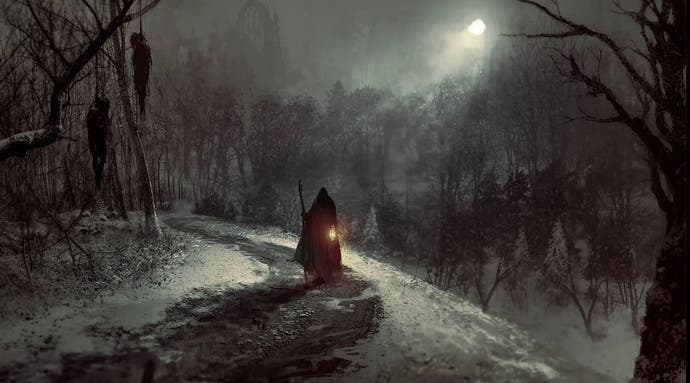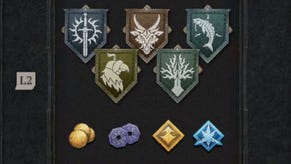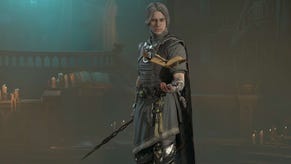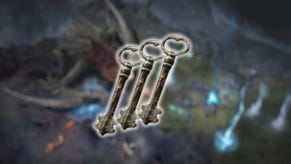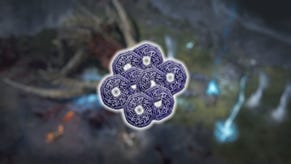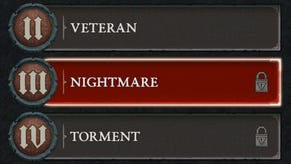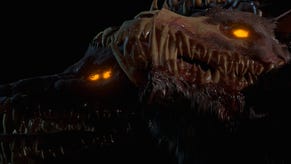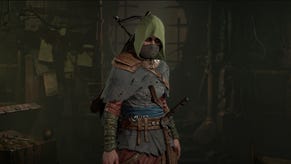How Blizzard keeps Diablo 4 feeling single-player despite its MMO elements
"Every class is a DPS class in Diablo."
If you played Diablo 4 during any of the various playtests Blizzard has held ahead of the game's early June launch, you'll probably have run into another player or two.
I saw players running around Kyovashad, the city in the Fractured Peaks region, popping into and out of portals, visiting vendors and milling about. It's the kind of thing you'd expect from an MMO - perhaps in a city set within Blizzard's own World of Warcraft.
Outside settlements, most of my impromptu encounters with other players revolved around public events either in progress or just finished (annoying).
I also joined a group to take on Ashava, a world boss encounter designed for 12 players. Unfortunately, I failed miserably (yes, someone managed to solo Ashava in the Server Slam beta).
Encountering other players in the always-online Diablo 4 is but one of a number of MMO-lite elements in the game. There's a clan system, raid-like boss fights such as the aforementioned Ashava battle, and a player revive mechanic.
At first glance, these systems are at odds with the traditional Diablo dungeon-crawling action RPG experience Blizzard is shooting for with the bulk of Diablo 4. You play the "Lone Wanderer" who strives to help humanity survive in a brutally oppressive, bleak world. There's a cool claustrophobia to the 'do it alone' dungeon crawling in Diablo 4, so it can feel a little jarring to see other Lone Wanderers step on your turf.
So how has Blizzard tuned Diablo 4 to retain that single-player feel despite these MMO-lite elements? Will Diablo 4 ever force players to group up to obtain certain rewards? And what about class roles for raid-style boss fights? I put those questions to Diablo 4 art director John Mueller and associate game director Joe Piepiora in a recent interview - here's what they had to say.
How have you tried to retain that traditional sense of what Diablo feels like to play with these light MMO elements, where you get these social experiences?
Joe Piepiora: From the design side, it is important to us that the player feels they are isolated as they wander around the world. Particularly when you're not in cities, the likelihood of you coming across other players is fairly low. We don't allow for a very high number of players to exist in the regular regions around the world.
It's 12 isn't it?
Joe Piepiora: That's the Ashava fight. You can change that region by region. So in places where we really do want a number of players to be available or a higher number of players, we will relax our zone caps in those spaces to account for that.
But beyond that, when you're just wandering around in places like the tundra in the Fractured Peaks when you're doing a side quest or whatever it is, it is much less likely for you to come across other players because the caps for those regions are lower.
And we're not doing that for a technical consideration. We're doing that specifically because we want to ensure we have created a certain sensibility around the experience as you're progressing through.
We love the idea that as you wander through a region, you're killing like an elite monster or something, another player can like ride along on a horse and jump off and attack that monster to help you kill it. We like that. It's a positive interaction. It feels good in the moment.
But we aren't trying to create a number of experiences that are, you need to go find a party to go do this thing. That's not really the focus. Every time you come across another player, we want that to be a positive interaction, but not feel mandatory as you're progressing through.
We talk about it like, two players will collide with each other, but then they kind of bounce off and continue on their own journeys, as opposed to, they come together, they did a thing, and now they absolutely are going to be a party together and go do everything together from that point forward. They might and that's fine. Online RPGs create opportunities for relationships to be formed, for you to meet people and to build those bonds. But that's not a requirement for gameplay to be successful. We want you to feel that the experience is king, as you're progressing.
John Mueller: I tend to get curious when I see people, more than annoyed. It's just not very frequent. I might be out exploring and I'll come across somebody and I'm like, oh, that's a player. It makes me curious about what they might be doing. What are they up to?
When I was out in Fractured Peaks, I didn't really come across a lot of players. But when I did, sometimes it was an event space and I was like, oh, this is great because I'm getting the loot faster, which was I think a good interaction.
I think it's an interesting juxtaposition: having that claustrophobia but also seeing other players. It's almost at odds with the tone and narrative Diablo 4 is going for.
Joe Piepiora: You won't ever run into players in our dungeon spaces, because those are private. And when you're going through the campaign narrative itself, you also won't see other players during those experiences either.
It isn't until after you've finished the campaign in a region that those areas become public, so you might see other players who aren't members of your party in those spaces.
So particularly through the campaign we really preserve the feeling when you're interacting with those characters, and you're completing those objectives and unveiling the story for yourself. And then when you are going back out into the continuous world of Sanctuary, then you will see more players wondering about, you get to go and try to find loot with them, try kill elites, go hunt in more dungeon spaces. It makes it more of a light social experience in those moments without intruding too much upon the feel we're trying to get as players progress.
One discussion point I've seen among players is about the potential for having unique rewards gated behind group content, when you've got world bosses that require up to 12 players. Do you have anything where there is a shiny new thing and effectively I'll have to group up to get it? There's no way I can do it solo? I know there are a couple of players in the world who can solo Ashava!
Joe Piepiora: Yeah, for Diablo 4, we don't want there to be a hard requirement for you to be in a party to do any of this content to get these rewards.
You talk about Ashava, and that does require that there would be other players around, but we haven't put things together in such a way that it requires such an intense level of coordination, for example to beat the Ashava encounter, that it necessitates voice chat, or being in a party at all.
We like the idea of playing near each other when you’re trying to attack Ashava particularly, but that really comes down to our world boss encounters and those world events that are out there. Beyond that, basically everything else is extremely solo friendly.
Playing with other players will get you an experience point bonus. There's incentives to do so. It does make content easier if you're in a group of four. But you absolutely don't need to do that.
One of the things I've seen is the idea that these encounters would be more interesting if Diablo 4 had class roles, but Diablo has never really felt like that sort of game to me.
Joe Piepiora: No, every class is a DPS class in Diablo. It's a mixture of single target damage, area of effect damage and survivability.
You don't want to be sitting there healing people.
Joe Piepiora: Yeah. There's some stuff with the Barbarian you can do. Everyone's got things they can do to help other characters. But we want to make sure the character you play works very well on its own, in isolation, not that it has to support another class for it to feel valuable.
